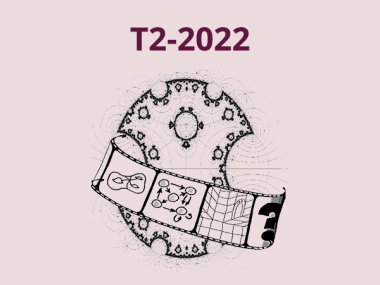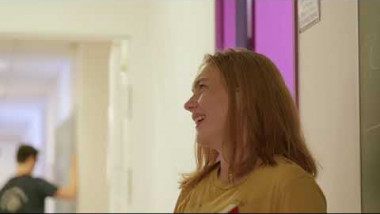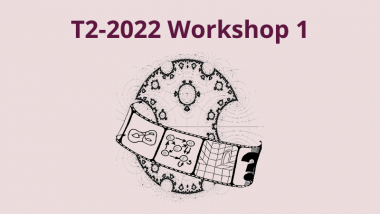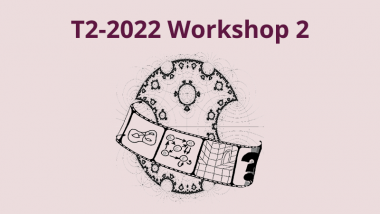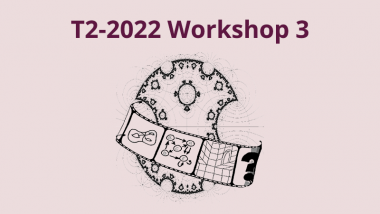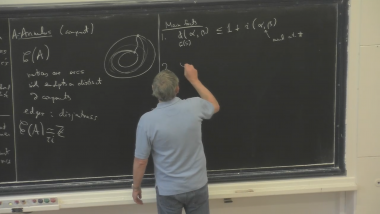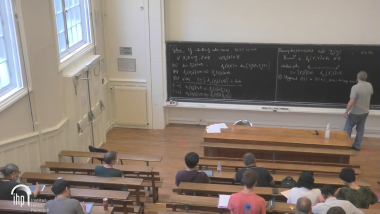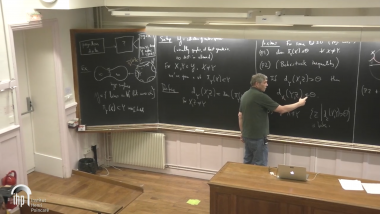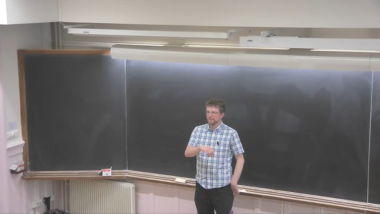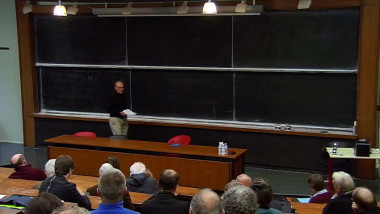Collection 2022 - T2 - Groups acting on fractals, hyperbolicity and self-similarity
Fractals play a key role in several topics in group theory. Many group actions have an intrinsically fractal nature. A prominent such scenario arises for a group acting on a tree when its restriction to a proper subtree is isomorphic to the original action. This is how Grigorchuk’s famous examples arise. Some groups have a boundary at infinity that is acompact fractal. This is the case for Gromov’s word-hyperbolic groups whose properties are reflected in the shape of this fractal boundary. Some groups are naturally related to dynamics of substitutions, leading naturally to fractalness of limit objects. This is the case for automorphism groups of free groups acting on the space of words, or automorphism groups of surface groups acting on the space of curves. We articulate our viewpoint of fractalness in group theory around these three topics: fractal groups acting on rooted trees, hyperbolic groups, and automorphism groups.
We chose these topics because they interact in interesting ways. Fractal groups are related to substitution dynamics, and so too are automorphisms of free groups. They often act on Gromov-hyperbolic spaces, and benefit from the framework of hyperbolic groupoids. Automorphisms of free groups or surface groups act on Gromov-hyperbolic spaces in ways that reveal their structure. The boundary of a hyperbolic group that is a free-by-cyclic semidirect product will reveal important information about its associated automorphism. Growth of discrete groups and orbits is also an important subject within each of these topics, and it too is related to fractalness.
There has been an explosion of extraordinary developments here, including some recent breakthroughs answering long-standing open questions, but many profound questions remain unresolved. The knowledge and techniques at the state-of-the-art have become vast, involved, and powerful. A young community of researchers has emerged but sometimes quite specialized. The goal of our platform is to gather several subspecialties to consolidate knowledge, to coordinate interactions, and to prepare young researchers to develop the next stages in this field. A goal of the interactional environment we will foster, is to stimulate fruitful collaboration, deeper interfaces and interconnections between the topics, andvaluable mathematical cross-fertilization for future ventures of the participants.
Organizer(s) Dahmani, François ; Erschler, Anna ; Horbez, Camille ; Wise, Dani
Date(s) 11/04/2022 - 08/07/2022
linked URL https://indico.math.cnrs.fr/event/5849/











